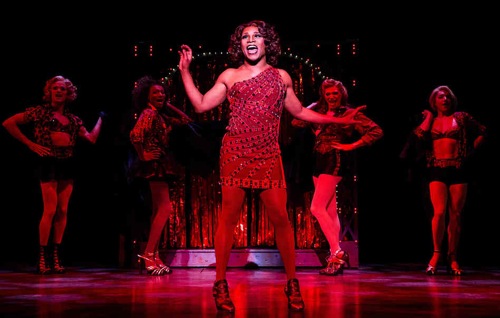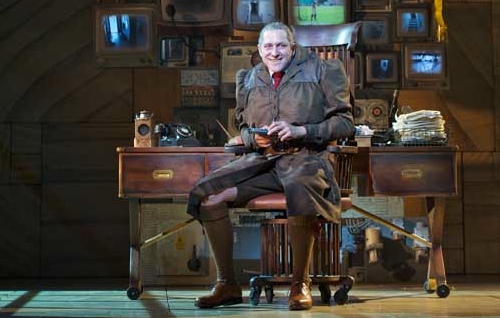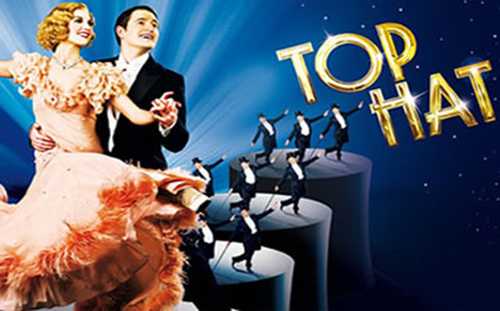
Based on a British film but wholly American in demeanour, Kinky Boots is the story of a Northampton shoe factory that, facing hard times, gambles on the “trans-gentry” market by developing a range of sparkly boots to sell to a niche as yet uncatered for by other provincial shoemakers. Stark Sands plays Charlie Price, Kinky Boots‘ George Bailey, tied to a factory he lacks passion for by family tragedy. His glamorous double is Billy Porter’s Lola (née Simon), a catty drag queen with father issues of her own who provides Charlie with his Archimedes moment and sets the plot in motion.
Kinky Boots is undeniably of its time, a theatrical manifestation of a world in which no niche is left unturned in the desire to monetise the fringes. In the UK, where marriage equality is a few technicalities away from realisation, this merits only a wistful sigh at the passing of drag queenery into the mainstream. In the US, though, where it’s still legal in 29 states to be sacked for being gay, Kinky Boots could be seen as laurel-resting. At one point, there’s a mawkish (and phantasmatic) reconciliation between the young Charlie and Lola and their absent fathers, suggesting that the show’s aim is to reconcile the subversive to the establishment rather than to boldly strive for a new kind of future.
Sands in particular transcends, making of a cliché-driven soliloquy in Act 2 a powerful soul-searcher: leaping around, handsome but agonised, hitting his high notes with a power and purity of timbre that’s thrilling to hear
Politics aside, Kinky Boots is a rollicking crowd-pleaser. Its 13 Tony nominations are well earned across the board — even in the face of fierce competition from the show’s telekinetic schoolgirl nemesis, Matilda. Narratively speaking, it’s an enthusiastic romp through the triumph-over-adversity trope, with Charlie breaking with the safe but drooping business of Price & Sons’ past and Lola winning acceptance from the factory’s burly, illiberal workforce. Sands and Porter are outstanding. Sands in particular transcends, making of a cliché-driven soliloquy in Act 2 a powerful soul-searcher: leaping around, handsome but agonised, hitting his high notes with a power and purity of timbre that’s thrilling to hear. Porter sails merrily through the stock demands of Lola’s character with awesome presence and comic timing, even provoking a slight moistness of eye during a tragicomic performance in a nursing home in Clacton. Both are ably supported by Annaleigh Ashford’s hilarious Lauren and Daniel Stewart Sherman’s Don.
Cyndi Lauper’s score has significant highs — notably the shameless bid for canonical singalong, Everybody Say Yeah, at the end of Act 1, and Lauren’s The History of Wrong Guys — but isn’t as outrageously rousing as one might expect. Harvey Fierstein’s book has some great jokes and movingly develops the relationship between Charlie and Lola, even if it lacks a little in both the exposition and action departments. It’s all held together by the exuberance of the cast, and that’s genuinely worth the ticket price. Just don’t ask any of them if they’ve ever been to Northampton: a more fearful glaze has rarely fallen across the faces of an exiting Broadway troupe when faced with an excited Brit declaring how much he enjoyed their show.
**** (4 stars)
Runs at the Al Hirschfield Tehatre, Broadway
More info



Be the first to comment